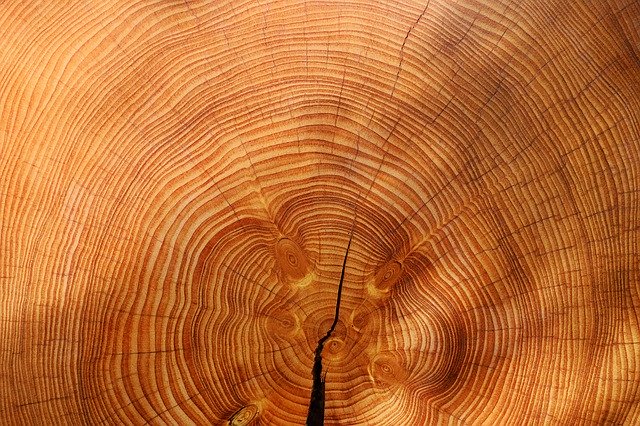You might already know that wood is an outstanding and energy-efficient building material. Wooden elements have an inherent aesthetic appeal. In this modern age, many people can feel alienated by cold, lifeless interior design choices. Millwork can be outstanding for your commercial business because it brings a touch of nature indoors. Nowadays, people should appreciate wooden elements more than ever. But we seem to have lost touch with the source of all wooden material: trees. Many people don’t know the first thing about what sorts of trees make the best material for millwork. Today, we’d like to start with the basics by breaking down the difference between the two main wood types: hardwood and softwood.

In this modern age, people can appreciate millwork more than ever. But do you know the difference between hardwood and softwood?
Hardwood
Don’t be fooled here: hardwood does not refer to wood that is harder than softwood. Rather, hardwood trees are angiosperms. In a layperson’s terms, angiosperms are flowering trees with broad leaves. Here are a few examples:
- Maple
- Oak
- Cherry
- Walnut
As we said, hardwood is not necessarily harder than softwood. For instance, balsa, in spite of being technically a hardwood, is way softer than the majority of softwoods. On the other side of the spectrum, take the example of yew. Yew is a softwood, but harder even than many hardwood species.
That said, it is true that hardwood generally holds up better over time than the alternative, making it an outstanding choice for architectural millwork. This means that they require less maintenance, and are at less risk of rotting or other forms of decay. You may also find that hardwoods tend to be more aesthetically appealing due to their beautiful grain patterns.
Softwood
What about softwood? A botanist would refer to softwood trees as gymnosperms. It might be helpful just to think of softwoods as evergreen trees with scale or needle-like leaves, such as pine. But the list does not end there. Here are a few more examples:
- Cedar
- Fir
- Hemlock
- Spruce
Generally speaking, softwoods are cheaper than hardwoods. They have a few added benefits of their own, including being easier to bend and cut. This is due to their low density compared to hardwoods. This makes them ideal for commercial millwork in the form of ceilings and furniture. You might find that they are not as visually pleasing as hardwoods, but they do compensate for that in terms of smell.
The Bottom Line
When faced with a decision between softwood and hardwood, things aren’t always black and white. We’re here to help at Mahogany, Inc. We will work with you to select the best materials for your commercial millwork needs. We believe that almost any business can benefit from a touch of millwork.
Contact Us
Whenever you’re ready to build or renovate a business, Mahogany Inc. has your back. Call us at 410-727-0334 with any questions and speak to one of our licensed professionals. To see examples of our work or to gain inspiration for your next project, follow us on Facebook, Twitter, and Pinterest.
